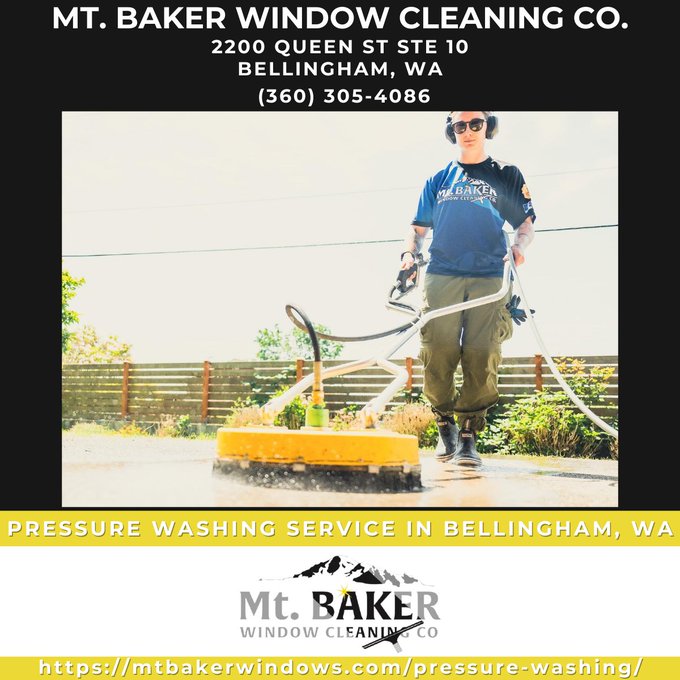Introduction
In the world of home maintenance, pressure washers stand out as essential tools for keeping surfaces clean and looking their best. When it comes to choosing between electric and gas-powered washers, homeowners often find themselves grappling with a multitude of factors—price, efficiency, environmental impact, pressure washing company and performance. This article delves deep into the nuances of electric versus gas-powered washers, providing insights to help you make an informed decision. By the end, you'll have a clearer understanding of which concrete pressure washing option is best suited to your needs.
" width="560" height="315" frameborder="0" allowfullscreen>
Choosing Between Electric and Gas-Powered Washers: Which is Right?
When deciding on whether to invest in an electric or gas-powered washer, consider the primary differences in performance, convenience, cost-effectiveness, and application.
Key Differences Between Electric and Gas-Powered Washers
Performance
- Pressure Output: Gas-powered washers typically offer higher PSI (pounds per square inch) ratings than their electric counterparts. This means they can handle tougher cleaning tasks more effectively. Water Flow Rate: Gas models usually have a higher GPM (gallons per minute) flow rate, enhancing cleaning efficiency.
Convenience
- Mobility: Electric washers are lighter and easier to transport. However, gas-powered units provide more freedom from cords. Setup Time: Electric models require less setup time since you just need to plug them in. Conversely, gas units might need fuel mixing or oil checks.
Cost-Effectiveness
- Initial Investment: Generally speaking, electric washers are cheaper upfront compared to gas models. Operating Costs: While electricity costs are relatively stable, gasoline prices can fluctuate significantly.
Understanding Your Cleaning Needs
Before making a choice between electric and gas-powered washers, assess what you intend to clean:
Light-duty tasks (e.g., washing cars or small patios): An electric washer might suffice. Medium-duty tasks (e.g., decks or driveways): A mid-range electric or entry-level gas model could work well. Heavy-duty tasks (e.g., commercial-grade cleaning): A high-performance gas washer would be best here.Evaluating Performance Metrics
1. What PSI is Needed to Pressure Wash a House?
The generally recommended PSI for washing a house ranges from 2000 to 3000 PSI. This level effectively removes dirt without damaging surfaces.
2. How Much Water Does It Take to Pressure Wash a House?
A typical pressure washing job may consume between 40 to 60 gallons of water for an average-sized home.
Cost Analysis of Pressure Washing Services
1. What’s the National Average Cost for Pressure Washing?
As of recent estimates, the national average cost for pressure washing services ranges from $0.10 to $0.50 per square foot depending on various factors like location and type of service provided.
2. How Much Should a Pressure Washer Charge?
The pricing for pressure washing services can vary based on several criteria including labor hours spent and equipment costs; however, contractors commonly charge between $25-$100 per hour.
Advantages and Disadvantages of Electric Washers
Pros:
- Quieter operation Easier maintenance Environmentally friendly
Cons:
- Limited mobility due to corded operation Lower power output
Advantages and Disadvantages of Gas-Powered Washers
Pros:
- High power output Greater portability
Cons:
- Noisy operation More maintenance required
Choosing Based on Frequency of Use
How Often Should I Pressure Wash My House?
Most experts recommend pressure washing your house once every year or two; however, high-pollution areas may require more frequent cleanings.
Understanding Soft Washing vs Pressure Washing
What is Soft Washing a House?
Soft washing utilizes low-pressure water combined with specialized detergents to safely remove dirt and stains from delicate surfaces like roofs without risking damage.
Operational Guidelines for Efficient Pressure Washing
How Long Does It Take to Pressure Wash a House?
Typically it takes about 30 minutes up to two hours depending on the size of the house; larger homes may require even more time.
How Long Does It Take To Pressure Wash A Driveway?
For an average-sized driveway, expect about 30 minutes; however, heavily stained driveways may take longer due to pre-treatment needs.
Frequently Asked Questions About Pressure Washing
1. Is pressure washing good money?
Absolutely! Many businesses report lucrative returns on investment in equipment relative to jobs completed during peak seasons.
2. How do you charge customers for pressure washing?
Most professionals charge by the square foot or hour worked; transparent quotes are crucial for customer trust.
3. Should I pressure wash my own house?
If you're equipped with knowledge about handling equipment safely and understand surface sensitivities—yes!
4. What's the difference between power wash and pressure wash?
Power washing employs heated water while pressure washing uses standard temperatures; both serve similar purposes but yield different results based on conditions.
5. Can I use a lower PSI washer for heavy-duty cleaning?
While possible with added detergent/pre-cleaning techniques—it's not advisable as it could prolong efforts unnecessarily!
6. How long does professional power washing take?
Typically around one hour per thousand square feet but can vary based on cleaning requirements outlined above!
Conclusion
In conclusion, choosing between electric and gas-powered washers boils down largely to personal preference combined with specific needs around performance metrics like PSI/GPM ratings along with anticipated usage frequency & project scope! By considering these facets carefully before investing—you’ll ensure that your chosen machine meets not just your expectations—but surpasses them consistently over time!
With this comprehensive guide at hand titled “Choosing Between Electric and Gas-Powered Washers: Which is Right?”, you're now well-equipped with knowledge that will aid both first-time buyers & seasoned users alike in making sound decisions regarding their future investments within this essential tool category!

